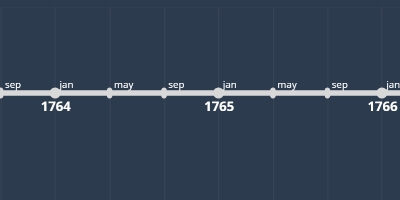22 Jan 1215 Jahr - English nobles write the Magna Carta
Beschreibung:
Magna Carta == "The Great Charter"In 1215 Medieval England ruled by King John, heavy taxes were imposed on the king's barons to finance his expensive foreign wars. Harsh punishments were imposed on all noncompliant individuals. He imprisoned his former wife, starved his opponents to death, and allegedly assassinated his nephew. At one point, his barons had enough and they seized London, forcing King John to negotiate, meeting at Runnymede in June of 1215. Their negotiation was recorded by the king's clerks onto parchment and sealed with a wax seal; this document would become known as the Magna Carta.
Most of its clauses discuss and decree medieval customs, justice and fair treatment. It has inspired world leaders such as Thomas Jefferson. One of the most famous clauses "coined" or written in the Magna Carta is that, for the first time, all free men would receive the right to a fair trial: "No men shall be arrested or imprisoned except by the judgement of their equals and the law..."
After the Pope declared the charter to be invalid, England plunged into civil war. After King John died of dysentery, King Henry assumed the throne at the age of 9. Throughout his reign, the charter would be re-established multiple times to preserve the peace. Eventually, the Magna Carta would be included into English law.
The United States Declaration of Independence as well as the United Nation's Universal Declaration of Human Rights both quote the Magna Carta. It is a symbol of liberty and serves as a reminder that even leaders have to act according to the law.
Two purposes:
1. Taxation needs the consent of the realm, i.e. parliament.
2. The parliament would consist of two houses: the House of Lords and the House of Commons.
"The great men of the realm are to be individually summoned and the other tenants of the king, many of which have knightly statuses, are to attend too"
"Great men of the realm" = House of Lords
"Other tenants" = House of Commons
Simon de Montfort, the youngest son of a great French noble, entered England in the 1230s, married the king's sister, was recognized as the Earl of Leicester, then led a rebellion against the king. On February 14th, 1265 at the Chapter House (which the king - King Henry III - built for daily monkly meetings and for himself and others to address parliament), King Henry III would adhere to the Magna Carta.
Simon de Montfort's parliament was arguably the beginnings of democracy in England.
Zugefügt zum Band der Zeit:
Datum:
22 Jan 1215 Jahr
Jetzt
~ 811 years ago
